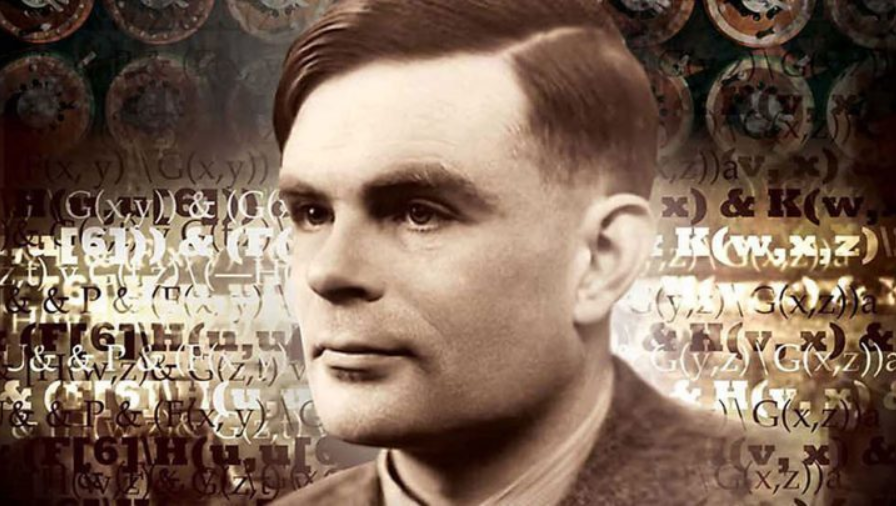Alan Turing

Alan Turing(23 June 1912 - 7 June 1954) was an English mathematician, computer scientist, logician, cryptanalyst, philosopher, and theoretical biologist. Turing was highly influential in the development of theoretical computer science.
Turing, who was very influential in the development of computer science, was born in London and studied at Cambridge and Princeton universities. It was at Cambridge that he invented the Turing Machine, a powerful logical machine that abstracted human computation. Turing machine not only proved the feasibility of computer implementation, but also gave the main structure of computer. Many of the modern computer frameworks can be seen in the design of the Turing Machine, so much so that it has been suggested that the Turing machinewas the beginning of computing.
During World War II, Turing was involved in the work of British intelligence to break German ciphers. He concentrated on cryptanalysis of the Enigma cipher machine used by Nazi Germany, The success of Turing and his team in deciphering the German cryptography system provided intelligence support for the victory of the anti-Fascist war. Turing also made innovative contributions to the field of cryptanalysis.
After World War II, Alan worked at the National Physical Laboratory in England, where he designed the automatic Computing engine, one of the first designs of a stored program computer.
In 1948, Turing joined Max Newman's computer laboratory at Victoria University of Manchester, where he helped develop the Manchester Computer.
In addition, Turing also made outstanding contributions to the field of artificial intelligence. He came up with a method for determining whether a machine was intelligent. It became known as the Turing Experiment, which is contested every year to this day.
In short, Turing's research results became one of the theoretical basis for the generation of modern computers, without his research, there would be no later modern computer generation and development.